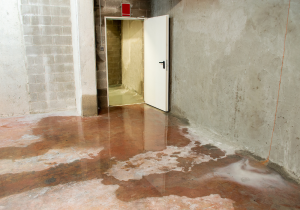Basement Waterproofing Myths Debunked

Basements are susceptible to moisture infiltration, which can lead to a host of problems such as mold growth, structural damage, and reduced indoor air quality. As experts in basement waterproofing and foundation repair, Ashworth Drainage is dedicated to dispelling common myths surrounding basement waterproofing. In this blog, we’ll debunk prevalent misconceptions and provide accurate information to help homeowners make informed decisions about protecting their basements.
 Myth 1: Basements Only Leak During Heavy Rainstorms
Myth 1: Basements Only Leak During Heavy Rainstorms
One common misconception is that basements only leak during heavy rainstorms. While heavy rainfall can exacerbate existing issues, basement leaks can occur for various reasons, including poor drainage, hydrostatic pressure, foundation cracks, and plumbing leaks. Even homes with well-maintained exterior drainage systems can experience basement leaks due to underlying structural issues or groundwater intrusion.
Myth 2: Waterproof Paints Provide Sufficient Protection
Many homeowners believe that applying waterproof paint or sealants to basement walls is an effective solution for preventing moisture infiltration. However, waterproof paints only provide a temporary barrier against moisture and are not a permanent solution to basement leaks. These products may mask underlying issues temporarily but fail to address the root cause of moisture intrusion, leading to persistent leaks and potential damage.
Myth 3: Exterior Waterproofing Is Always Necessary
While exterior waterproofing is an effective solution for preventing moisture intrusion, it is not always necessary or feasible for every home. Exterior waterproofing involves excavating around the foundation, applying waterproof membranes or coatings, and installing drainage systems to redirect groundwater away from the foundation. While effective, exterior waterproofing can be costly and disruptive, especially for homes with limited access or landscaping.
Myth 4: All Waterproofing Contractors Are the Same
Not all waterproofing contractors are created equal, and choosing the right contractor is crucial for ensuring the success of your basement waterproofing project. It’s essential to research potential contractors thoroughly, inquire about their experience, credentials, and reputation, and request references from past clients. Choose a reputable contractor like Ashworth Drainage with a proven track record of delivering high-quality waterproofing solutions and excellent customer service.
 Myth 5: Waterproofing Is Only Necessary for Finished Basements
Myth 5: Waterproofing Is Only Necessary for Finished Basements
Some homeowners believe that waterproofing is only necessary for finished basements or homes located in flood-prone areas. However, all basements, regardless of their use or location, can benefit from proper waterproofing measures. Moisture infiltration can occur in any basement and lead to a range of issues, including mold growth, musty odors, and structural damage. Investing in basement waterproofing is a proactive measure that can protect your home and its occupants.
Myth 6: DIY Waterproofing Is Effective and Cost-Effective
Attempting to waterproof your basement as a DIY project may seem like a cost-effective solution, but it often leads to subpar results and costly repairs down the line. Basement waterproofing requires specialized knowledge, tools, and materials to address underlying issues effectively. DIY attempts may fail to identify the root cause of moisture intrusion or inadequately address structural vulnerabilities, leading to ongoing leaks and damage.
Myth 7: Waterproofing Is a One-Time Fix
Contrary to popular belief, basement waterproofing is not a one-time fix and requires ongoing maintenance and periodic inspections to ensure effectiveness. Over time, soil settlement, foundation shifts, and changes in groundwater levels can affect the performance of waterproofing systems. Regular maintenance, including cleaning gutters, inspecting downspouts, and resealing joints and cracks, is essential for preserving the integrity of your basement waterproofing system.
In conclusion, debunking common myths about basement waterproofing is essential for empowering homeowners to make informed decisions about protecting their homes from moisture intrusion. By understanding the realities of basement waterproofing and partnering with a reputable contractor like Ashworth Drainage, homeowners can safeguard their basements against leaks, mold, and structural damage. Don’t let misconceptions prevent you from taking proactive steps to protect your home’s foundation and ensure a dry, healthy living environment.
